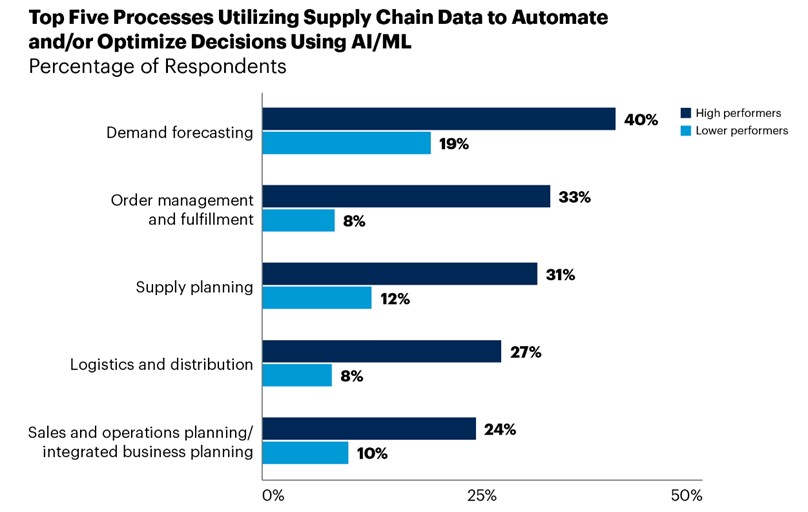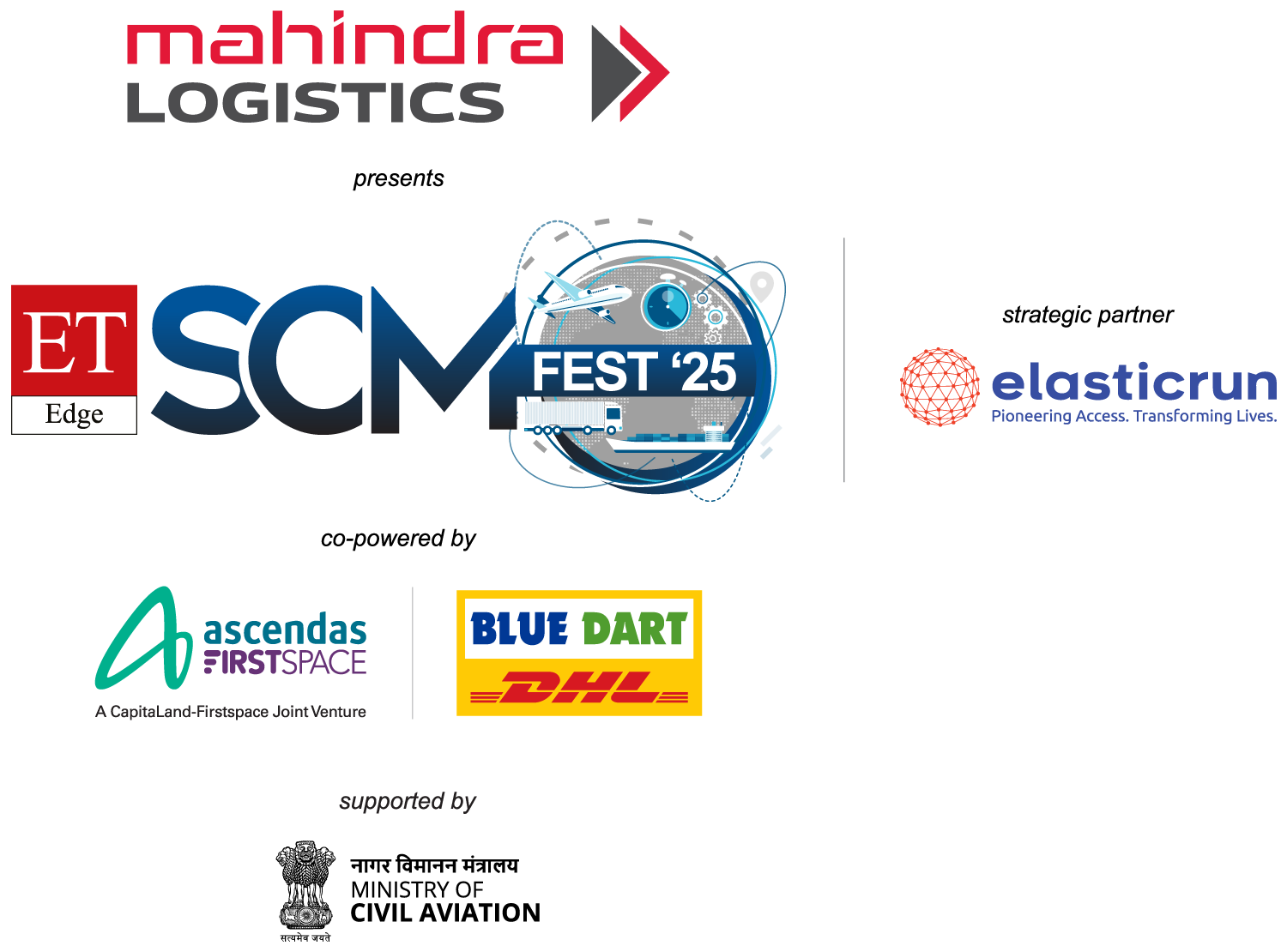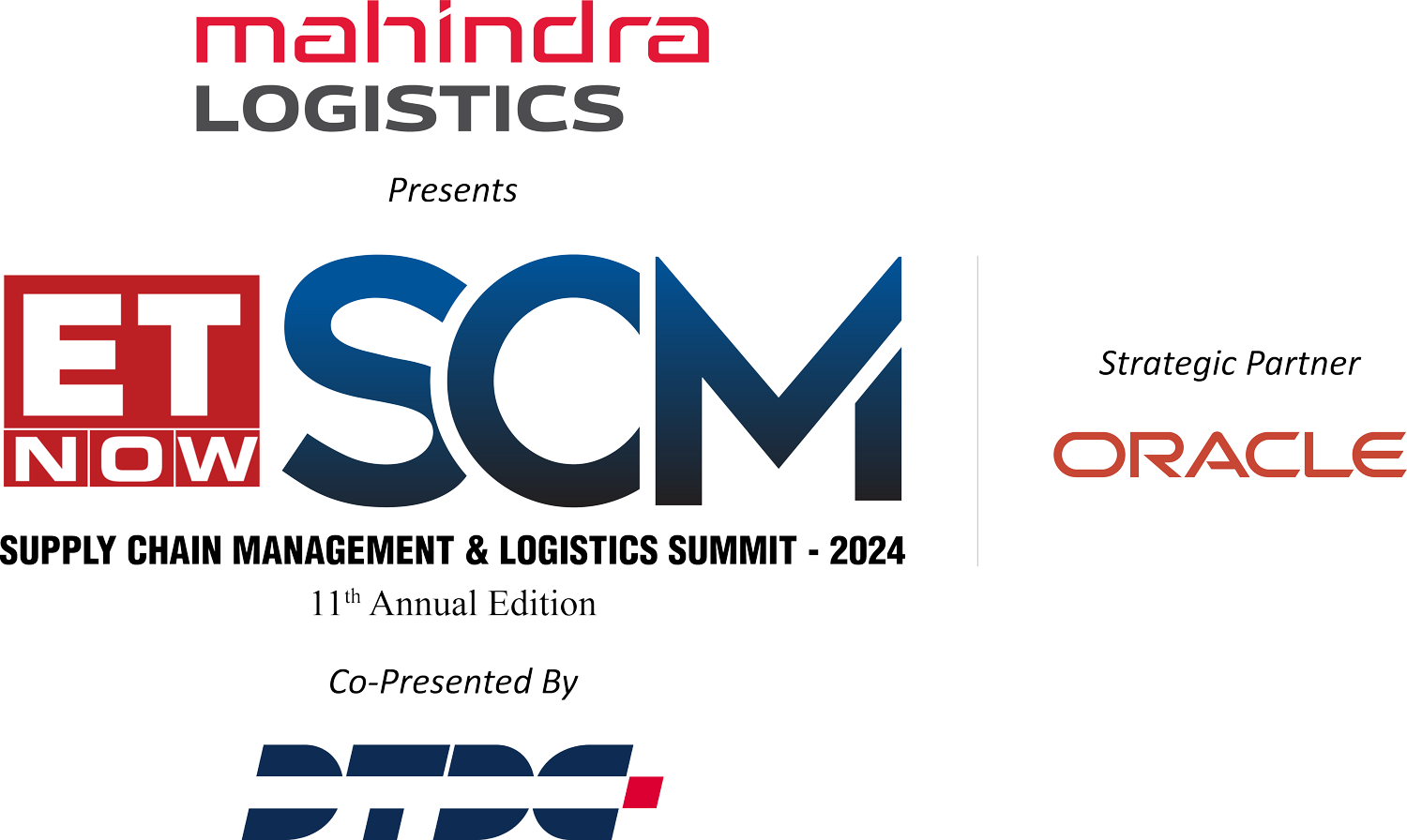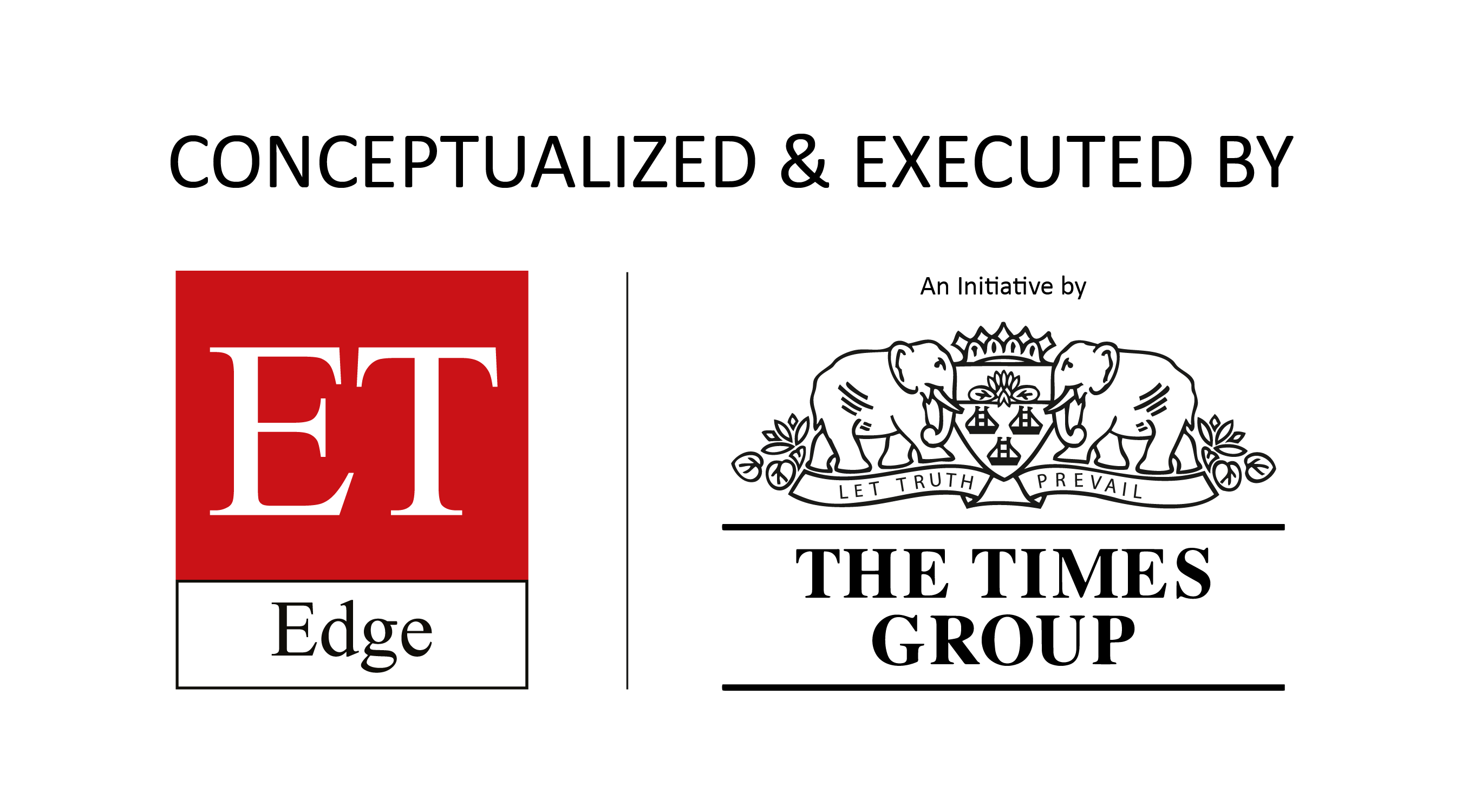Article
- Home
- Article

- scmcp2025
- 0 Comments
Revolutionizing Efficiency & Precision by Leveraging AI in Healthcare Supply Chain
Written by: Dr. Venkatesan N, Director & Chief Procurement Officer – SCM, Max Healthcare Group
The integration of artificial intelligence (AI) technologies into healthcare supply chain management has the potential to reshape the industry, improving efficiency, accuracy, and responsiveness. AI-powered interfaces are revolutionizing how medical supplies, equipment, and pharmaceuticals are procured, distributed, and managed, leading to cost savings, reduced waste, and enhanced patient care outcomes.
Gartner interviewed 818 supply chain professionals from August to October 2023 and identified 119 supply chain professionals to be from “high-performing” organizations while the remaining 569 professionals worked for “lower performers”.
High Performing Organizations use AI at Twice the Rate of Lower-Performing Peers. According to the survey, 40% of the high performers surveyed said that they are using AI/ML for demand forecasting, while that figure came in at just 19% for the lower performers. The greatest disparity came when AI/ML was used for order management and fulfilment. While just 8% of lower performers used this technology for those processes, 33% of high performers said they used AI/ML for the same operations.

It’s clearly evident how AI is being leveraged by top performing organization to optimize their process and build efficiency. Let’s understand in details about its key applications, benefits, challenges, and future prospects of AI interfaces in the healthcare supply chain.
Applications of AI Interface in Healthcare Supply Chain
Demand Forecasting: AI algorithms can analyze historical data, trends, and external factors to predict demand for medical supplies and equipment accurately. By implementing AI-driven demand forecasting models, healthcare organizations can optimize inventory levels, reduce stockouts, and minimize excess inventory.
Inventory Management: AI-powered interfaces can monitor inventory levels in real time, automatically reorder supplies when stock levels are low, and track expiry dates to prevent waste. By using predictive analytics and machine learning, healthcare providers can ensure a seamless supply chain operation with optimized inventory management.
Route Optimization: AI algorithms can optimize delivery routes based on factors such as traffic conditions, weather, and demand patterns. By implementing AI-driven route optimization solutions, healthcare organizations can reduce transportation costs, improve delivery times, and enhance the efficiency of supply chain logistics.
Supplier Management: AI interfaces can assess supplier performance, analyze contract terms, and identify cost-saving opportunities. By leveraging AI technologies, healthcare organizations can make informed decisions when selecting suppliers, negotiating contracts, and managing vendor relationships.
Quality Control: AI-powered interfaces can monitor product quality, detect defects, and identify potential issues in the supply chain. By integrating AI-driven quality control systems, healthcare providers can ensure that only high-quality products reach patients, enhancing safety and compliance standards.
Benefits of AI Interface in Healthcare Supply Chain
Enhanced Efficiency: AI interfaces streamline supply chain processes, automate routine tasks, and optimize resource allocation. By leveraging AI technologies, healthcare organizations can achieve operational efficiency, reduce manual errors, and improve overall productivity.
Cost Savings: AI interfaces help healthcare providers identify cost-saving opportunities, negotiate better deals with suppliers, and minimize wastage. By implementing AI-driven cost optimization strategies, organizations can reduce overhead costs, improve budget management, and enhance financial performance.
Improved Patient Care: AI interfaces facilitate faster delivery of medical supplies, accurate inventory management, and optimized supply chain logistics. By ensuring timely access to essential healthcare products, AI technologies contribute to improved patient care outcomes and satisfaction.
Data-Driven Decision-Making: AI interfaces analyze vast amounts of data, provide actionable insights, and support data-driven decision-making in the healthcare supply chain. By leveraging AI-driven analytics, healthcare providers can make informed decisions, anticipate trends, and mitigate risks.
Regulatory Compliance: AI interfaces help healthcare organizations monitor compliance with regulatory standards, track product authenticity, and ensure adherence to quality control measures. By using AI technologies, organizations can meet stringent regulatory requirements and maintain high standards of patient safety.
Challenges of AI Interface in Healthcare Supply Chain
Data Security: AI interfaces rely on vast amounts of sensitive data, raising concerns about data security, privacy, and confidentiality. Healthcare organizations must implement robust cybersecurity measures to protect patient information and prevent data breaches.
Integration Complexity: Integrating AI interfaces into existing supply chain systems can be complex and challenging, requiring technical expertise and resource allocation. Healthcare providers need to invest in infrastructure, training, and change management to ensure a seamless transition to AI-driven solutions.
Ethical Considerations: AI interfaces raise ethical issues related to bias, transparency, and accountability. Healthcare organizations must address ethical concerns, ensure fairness in decision-making algorithms, and uphold ethical standards in AI implementation.
Technology Adoption: Adopting AI interfaces requires investment in technology, expertise, and organizational readiness. Healthcare providers need to overcome resistance to change, build staff capabilities, and cultivate a culture of innovation to successfully implement AI-driven solutions.
Interoperability: Ensuring interoperability between AI interfaces and existing supply chain systems is crucial for seamless data exchange and workflow integration. Healthcare organizations must standardize processes, establish data protocols, and collaborate with stakeholders to achieve interoperability.
Future Prospects of AI Interface in Healthcare Supply Chain
Predictive Analytics: AI interfaces will continue to advance predictive analytics capabilities, enabling healthcare organizations to anticipate demand, optimize inventory, and improve supply chain decision-making.
Autonomous Supply Chains: AI interfaces will enable autonomous supply chain operations with minimal human intervention, leveraging machine learning, robotics, and automation to optimize logistics, reduce costs, and enhance efficiency.
Personalized Medicine: AI interfaces will support personalized medicine initiatives by optimizing supply chain processes, enabling faster access to specialized treatments, and improving patient outcomes through tailored healthcare solutions.
Sustainable Practices: AI interfaces will promote sustainability in the healthcare supply chain by optimizing energy consumption, reducing waste, and promoting eco-friendly practices, aligning with global sustainability goals and environmental stewardship. For many organizations, energy costs are significant. Gartner research shows that 80% of SCM business leaders surveyed said that their sustainability programs help their organizations optimize and reduce costs in response to disruptions.
Innovation and Collaboration: AI interfaces will drive innovation and collaboration among stakeholders in the healthcare supply chain, fostering partnerships, knowledge sharing, and technology adoption to address challenges, drive efficiency, and improve healthcare delivery.
The integration of AI interfaces into the healthcare supply chain is transforming the industry, driving efficiency, precision, and innovation. As healthcare providers embrace AI technologies, they can unlock new possibilities, overcome challenges, and accelerate the evolution of the healthcare supply chain towards a more efficient, sustainable, and patient-centered future.
© Copyright 2025. All Rights Reserved.


